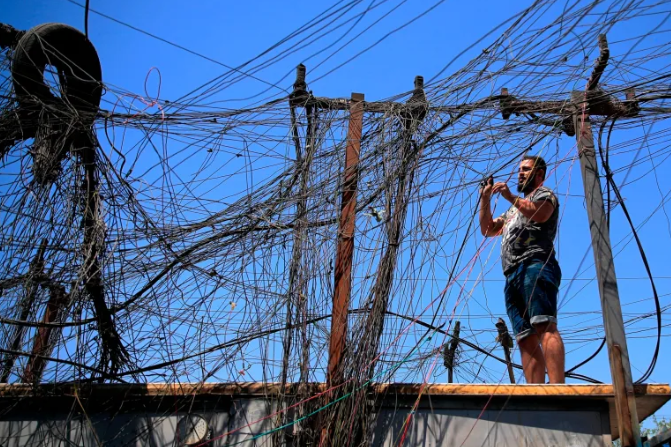A statement by Iraq’s Ministry of Electricity on Saturday said a fire broke out shortly after noon at the Al-Bkir station in the southern city of Basra.
The AFP news agency quoted ministry spokesman Ahmed Moussa as saying the outage at some point affected the main supply to “all of Iraq”.
Three electricity towers in the north were also reportedly hit by sabotage attacks on Saturday, according to a local transmission company which said they were hit by improvised explosive devices, temporarily cutting off service.
It did not say who was responsible for the attack, but ISIL (ISIS) fighters and other armed groups have been known to be active in the area.
There were also reports and a video online purporting to show a fire burning at night at the electricity station in the Jamila neighbourhood, located within Sadr City in eastern Baghdad.
The Baghdad municipality said the outage caused by the fire in Basra had an effect on other services, like a disruption in the tap water supply, and that it was trying to run water pumps using generators to limit the impact on citizens.
Many households subscribe to neighbourhood generators for emergency supplies, if they can afford it, as the country suffers regular outages during the summer.
Iraq is an oil-rich country, but its dilapidated power grid remains incapable of meeting peak demand during hot summers, leaving many without electricity as temperatures rise.
In addition to importing electricity from neighbouring countries like Iran, the government has been expanding its electricity generation capacity. But ministry figures say it still lacks the capacity to meet an estimated demand of 32,000 megawatts a day in the country.
Peak temperatures are expected to near 50 degrees Celsius (122 degrees Fahrenheit) in the coming days.
Saturday’s outages also come on the Shia religious holiday of Ashura, a mourning period when many public gatherings are held.
Last month, Iraq signed a $27bn agreement with France’s TotalEnergies, the largest foreign investment in Iraq’s history, to generate power using natural gas.
Many hope the deal will help resolve the country’s longstanding energy woes, attract international investors and reduce its reliance on imports.


 RSS Feed
RSS Feed